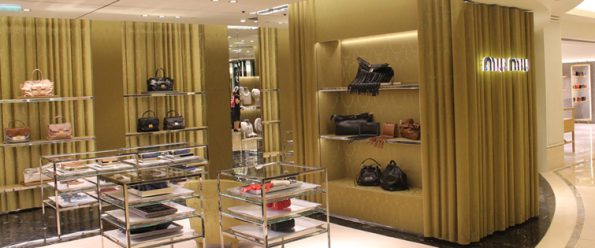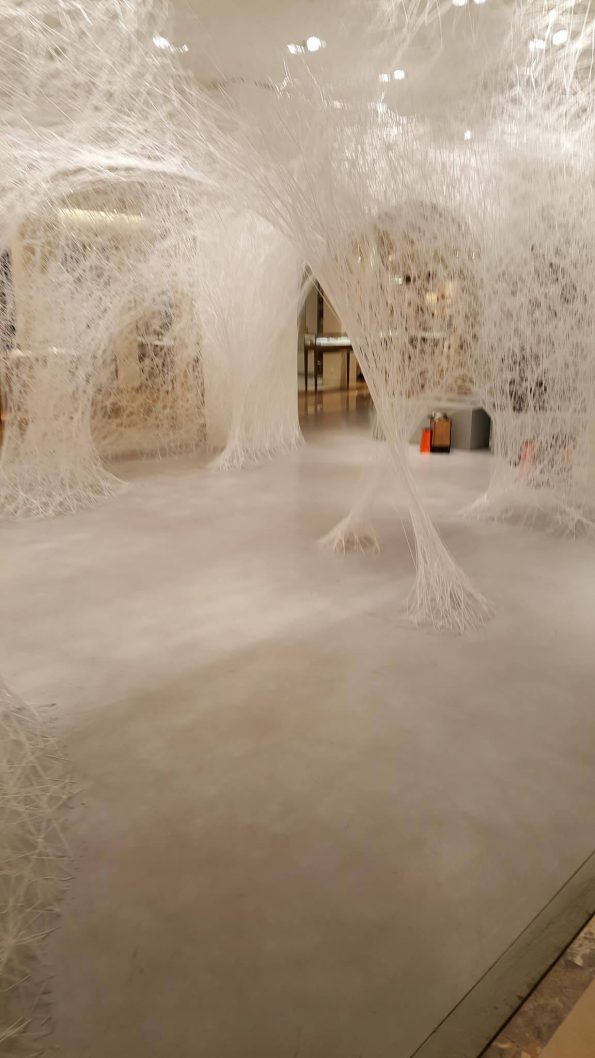BY LAVINIA LIANG

For three years now, Valentine He has lived and loved Paris as her own. However, if her visa doesn’t go through by the end of April, she could be deported back to her native residence in Hangzhou, China. The young attendant at Le Bon Marché, the world’s first department store, has her fingers crossed that things will work out for her to stay in France.
Le Bon Marché is not an American Macy’s. It is filled to the brim with the finest fashion goods that Paris offers, from Givenchy to Hermès. A large art installation claims the center of the store. The department store is startlingly white and sterile. Everyone speaks in low voices in Le Bon Marché.
In MIU MIU, where He works, the cheapest pair of sunglasses is 270 euros. Sunglasses themselves fill up half a wall of the store, and range from simple gold wire frames to large, plastic frames encrusted with gems in the shapes of feathers.
He is petite and large-eyed, and today, dressed in all black except for a tiny gold nametag pinned to her shirt. Several other attendants were milling around the MIU MIU section of Le Bon Marché, but He was the only obviously Chinese one. She was helping a Chinese customer, a man not much older than she. The man was crouching on the floor. The man proceeded to scoop patent leather clutches into a garden tote bag, stand up, and then text on his phone for a few minutes.
After the man left, He explained that he was a shopper, one based on the Paris side. Some Chinese immigrants in Paris, many of them students, buy name-brand goods to sell to customers in China for a profit. The shoppers directly sell these items, mostly handbags, to individuals through social media channels such as the app WeChat. The shoppers buy enough in one spree to render their purchases tax-free and discounted as according to the high-end stores’ incentive rates.
Everyone at Le Bon Marché knows this, He said. But the luxury goods stores are unable to do anything about it, since the Chinese shoppers are careful and follow all rules while conducting business. They also like to go through Chinese store attendants, like He, when doing this business—“because of language,” He explained.
A glasses-clad young man sitting on a bench near the building exit was wearing a gray hoodie and surrounded by duffel bags, as though on vacation and mid-transit. But when asked, he quietly explained that he was a shopper. His bags were filled with more bags, ready for sale. He moved to Paris five years ago. His unassuming demeanor was different from that of the first man in MIU MIU; the man in MIU MIU was much louder and more aggressive in his way of speech. A shopper could be anyone.

All of He’s family is still back in China. She longs to travel and see places farther than Paris someday, too. “I really want to visit America,” she said. “I want to see if New York is as yong ji as Paris is.” She paused for a moment to take out her phone, looking up the English translation of yong ji—which means “crowded” or “packed.”
“But I also just feel nervous now because of Trump,” she added. “I feel like I would get bullied there. Plus, American Chinese food has become its own thing…And it is so bad!”
